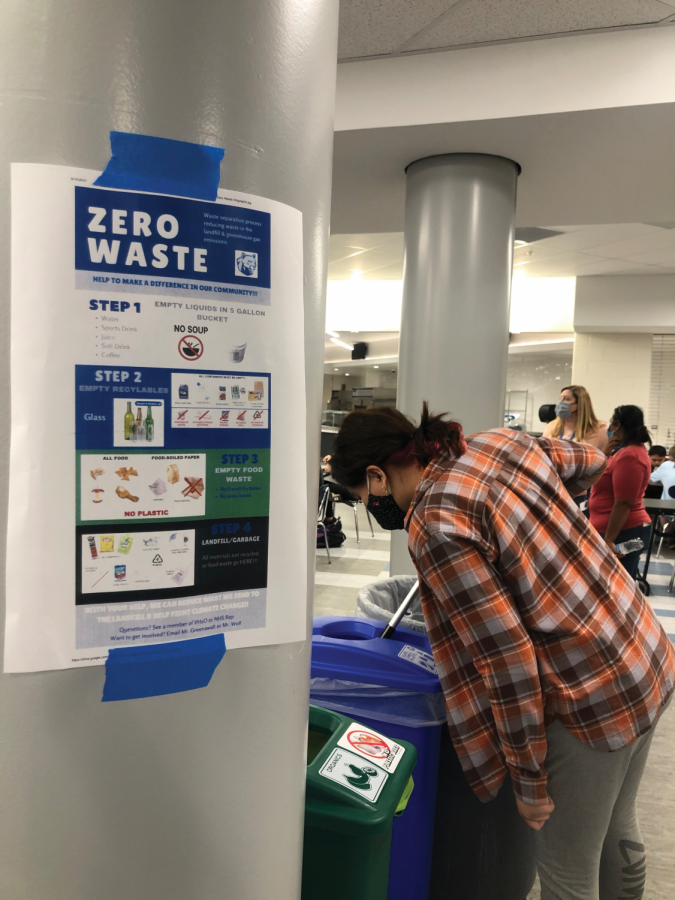Students introduced to environmentally-safe habits through zero-waste initiative
Rabiga Abdulleva (12) contributes her National Honor Society service hours by volunteering to sort waste into the appropriate bins during her lunch period.
VH2O, the school’s environmental club, has decided to encourage students to sort their trash as part of a new zero-waste lunch initiative. During lunch periods, students have been asked to sort their trash into different containers instead of dropping it into the regular trash bins. This trash is then collected in a different process by the school custodians, and is turned into composting materials.
Contrary to recycling, composting is the process of turning sorted trash into soil treatments. VH2O is hoping to start educating students about the benefits of composting for issues such as climate change. They hope that as a result, VHHS stops contributing to landfills and focuses on environmental sustainability instead.
“There are obviously some alarming statistics in Lake County,” Saira Alavi (12), a VH2O executive board member, said. “We’re going to use all our landfill space in five years, but that just kind of made us more aware that something… needs to be done soon.”
The original plan to roll out this initiative was made back before COVID-19 became a worldwide pandemic. The club planned to have a “grand opening” with educational booths in the foyer and presentations during Earth Week of April 2020.
“We were ready to tee all that up and… we were going to expose the student body and faculty to what Zero Waste was, “ Kedric Greenawalt said. “Then, March 12th, 2020 hit, and unfortunately, we had none of that.”
Greenawalt is an earth science teacher and staff sponsor of the zero-waste initiative. He had been working hard for this initiative to get back on its feet after the pandemic. He described it as a “difficult one-man job,” but he’s proud that the project has finally taken off.
After three weeks of rolling out this initiative, the cafeteria has produced around 15-20 pounds of composted soil. According to Greenawalt, recycling bins are also the least contaminated that they’ve ever been in the school’s history. This was made possible in three weeks by the VH2O council, teacher sponsors, and student volunteers.
Alavi also works as a volunteer for the National Honor Society. Some seniors like her have signed up during their lunch periods to sort trash into the different bins. The efforts have allowed volunteers to fulfill their service hour requirements while lending some helping hands to the initiative.
“A lot of students have commonly been like, ‘Okay, I think this goes here’ and ‘Where does this go in?’”Alavi said. “They’ve been cooperative and they’re willing to collaborate and work with it.”
In the future, VH2O plans to ease the educational perspective of this initiative. With the lack of classroom recycling bins, the project is limited to happen in the cafeteria as of now, but after COVID restrictions get lifted, it will be pushed out into other areas of the school.
“The future plans would be to move from the cafeteria to catered events like team dinners or professional development for teachers,” Greenawalt said. “Hopefully, [students] will also see recycling and trash bins in the hallway.”
Jacquelyn Han and Bisti Potdar contributed to this report.

